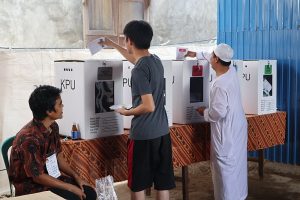In recent years, developments in Southeast Asian politics – such as Myanmar’s troubled transition or democratic erosion concerns in Indonesia – paired with wider trends, such as perceived global democratic rollback and growing U.S.-China competition, have coalesced to create a sense of what might be termed “democratic discontent” in the region.
While this may be just one phase of a broader set of ebbs and flows in governance in Southeast Asia, it nonetheless deserves attention. The impact will be felt not only in the human costs of rising authoritarianism, but also in the geopolitical implications for strategic trends such as the region’s role as a center of regional normative development through ASEAN-centered institutions as well as increasing major power engagement.
In a new report for The Wilson Center, I attempt to shed light on this issue by examining the state of democracy in the region and its strategic implications. The report, based on statistical data as well as conversations with officials and practitioners, argues that the state of democracy is best framed as the region’s broader experience of being caught between discontent and hope with respect to governance. There are legitimate concerns due to regime dynamics, normative stagnation, and intensifying global ideological competition, but also some hope in a region that is young, economically vibrant, geopolitically significant, and home to a range of non-state actors that are looking to have their voices heard.
Understanding this state of affairs has significant implications not just for Southeast Asian states, but for the region more generally. While the focus is often on the challenges they create, including with respect to domestic regime legitimacy, foreign policy autonomy, and regional centrality, there are also opportunities for democracy advocates from the region and beyond, leading to more scrutiny of governance issues, galvanizing efforts to address previous challenges, and providing an opening for outside actors to assist.
The report makes several recommendations for policymakers in Southeast Asia and other key Indo-Pacific capitals about how to manage democracy’s uncertain future in Southeast Asia. Southeast Asian states, for their part, need to be more attentive to addressing domestic legitimacy gaps for their own sake, including insulating themselves from global challenges such as foreign interference. But apart from this, more democratic nations in the region such as Indonesia as well as civil society groups will also play important roles in promoting democracy and human rights in the region, slowing potential backsliding, and addressing cross-national issues such fake news and disinformation, corruption, and land rights.
Outside actors, including the United States and like-minded allies and partners, also have important roles to play, such as capacity-building and assistance for more independent journalism and polling. Established Western democracies should also work with established Asian democracies, such as India, Japan, South Korea, and Taiwan, in order to reinforce the benefits of democracy in a more contested ideological environment in Southeast Asia.
To be sure, the development of democracy and governance in Southeast Asia is an ongoing process, and we may well see further changes in this process in the subregion as well as elsewhere in the Asia-Pacific region in the coming years. Nonetheless, even as we see these elements of continuity and change take shape, it will be important to keep these more general implications in mind moving forward.
Note: The above article is based on a summary from a Wilson Center report released by the author. You can read the full report here.

































